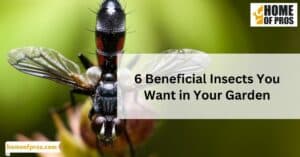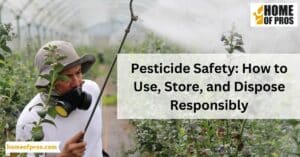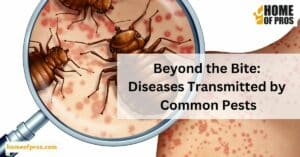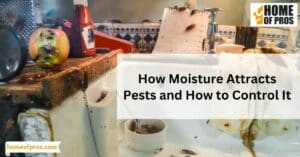Flies buzzing around your home can be a nuisance you want to get rid of quickly. Whether they are invading your kitchen or lounging on your patio furniture, there are effective strategies for controlling and removing flies.
If you’re dealing with a house fly problem, don’t just swat them away. Take action to prevent further infestation by keeping your home clean and sealed, using natural repellents, and when necessary seeking professional extermination. You can also create homemade traps to help reduce their numbers.
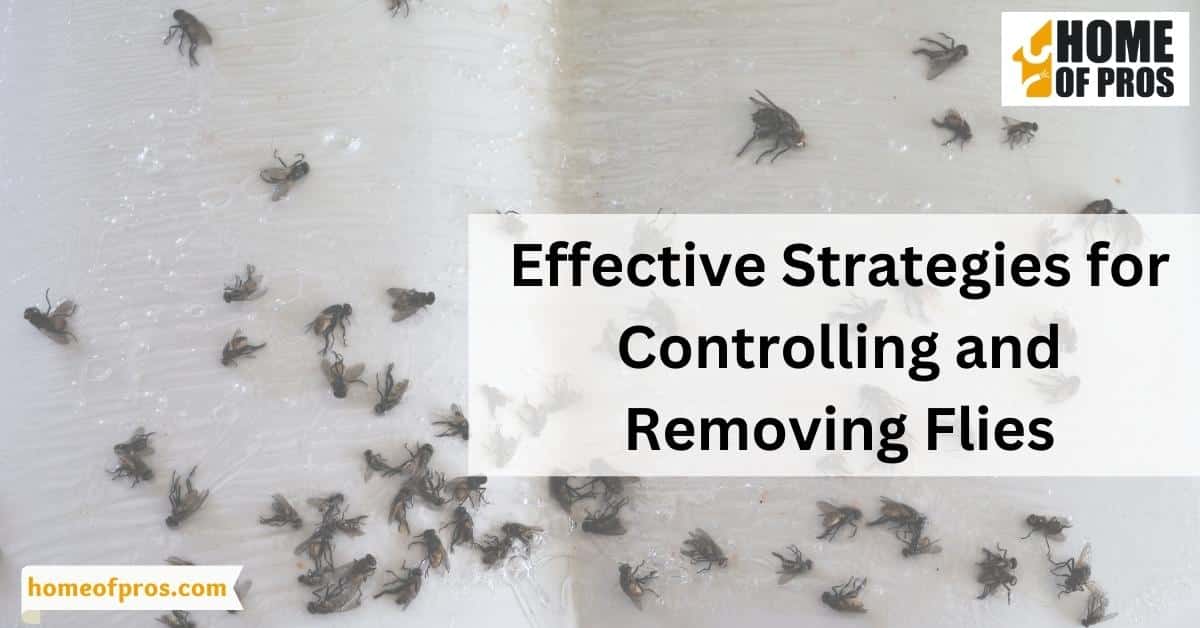
Understanding the Potential Dangers of House Flies
House flies are more than just a nuisance buzzing around your home. They pose a significant health risk, carrying a multitude of diseases that can harm you and your family.
What Makes House Flies Dangerous?
You may think of flies as harmless, but they can carry over 100 different types of disease-causing germs.
When a house fly lands on your food or surfaces in your home, it can leave behind harmful bacteria and viruses.
The diseases they can transmit include typhoid, cholera, dysentery, and even tuberculosis.
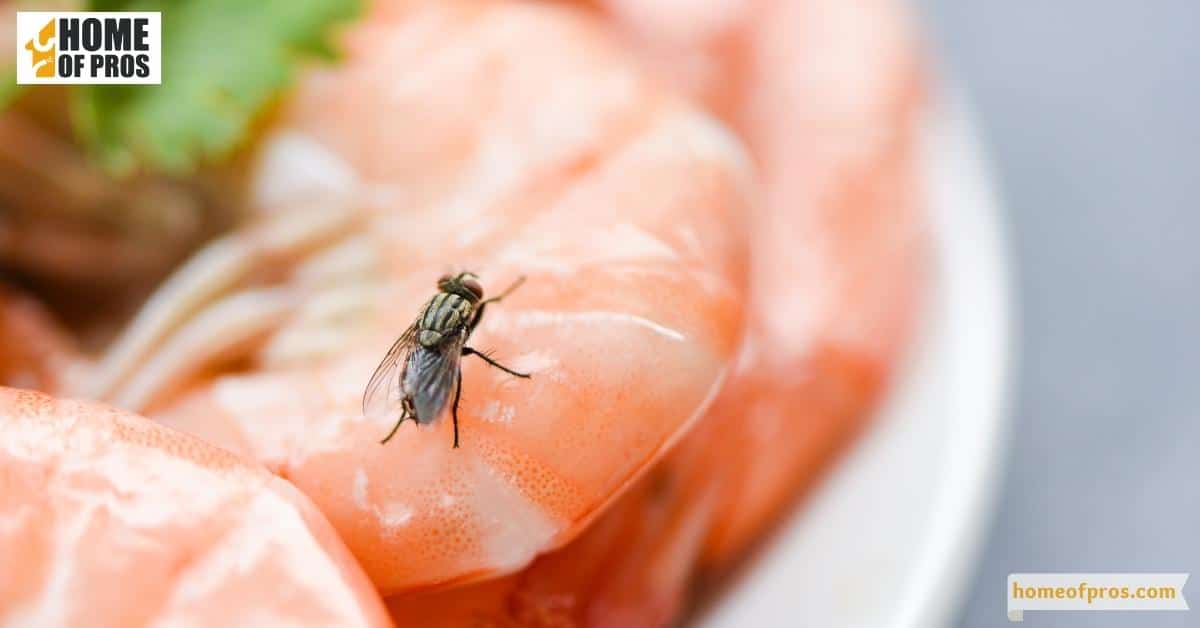
The Disease-Transmitting Process
House flies feed by vomiting digestive juices onto solid food and then sucking up the resulting liquid. In this process, they also defecate, leaving behind a trail of disease-causing organisms.
If this happens on your food or kitchen surfaces, it can lead to food poisoning or other illnesses.
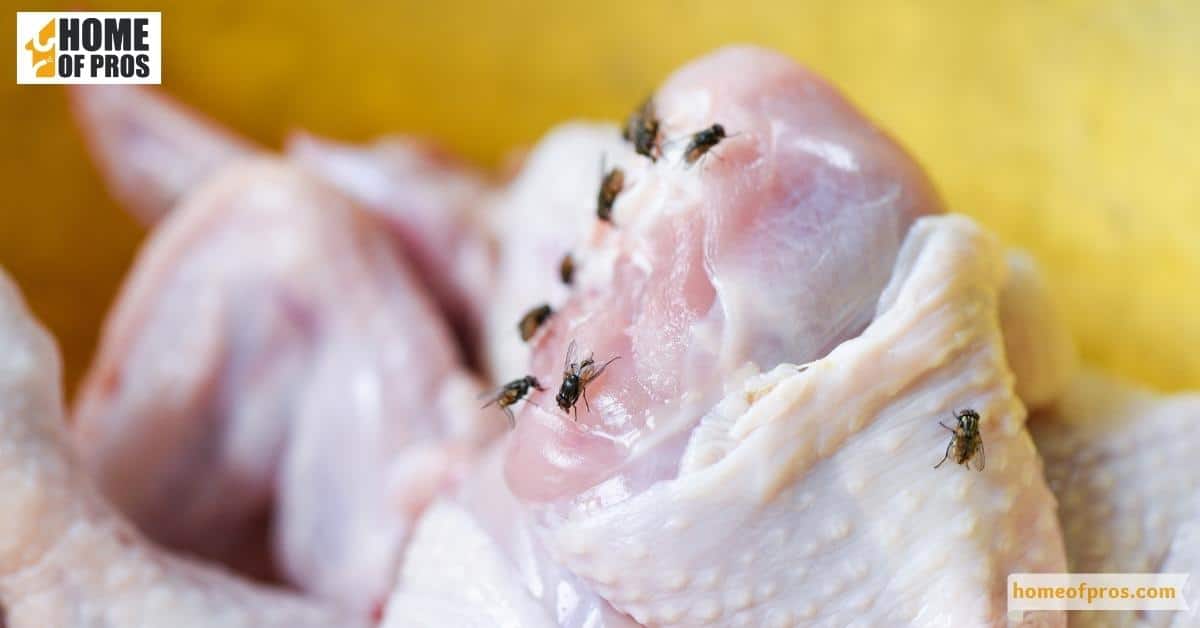
Protecting Your Home from House Flies
Keeping house flies out of your home is crucial for maintaining a healthy living environment. Here are some practical steps you can take:
Maintain Cleanliness
House flies are attracted to garbage, so keeping your home clean can help deter them. Make sure to regularly take out the trash and clean up any food spills immediately.
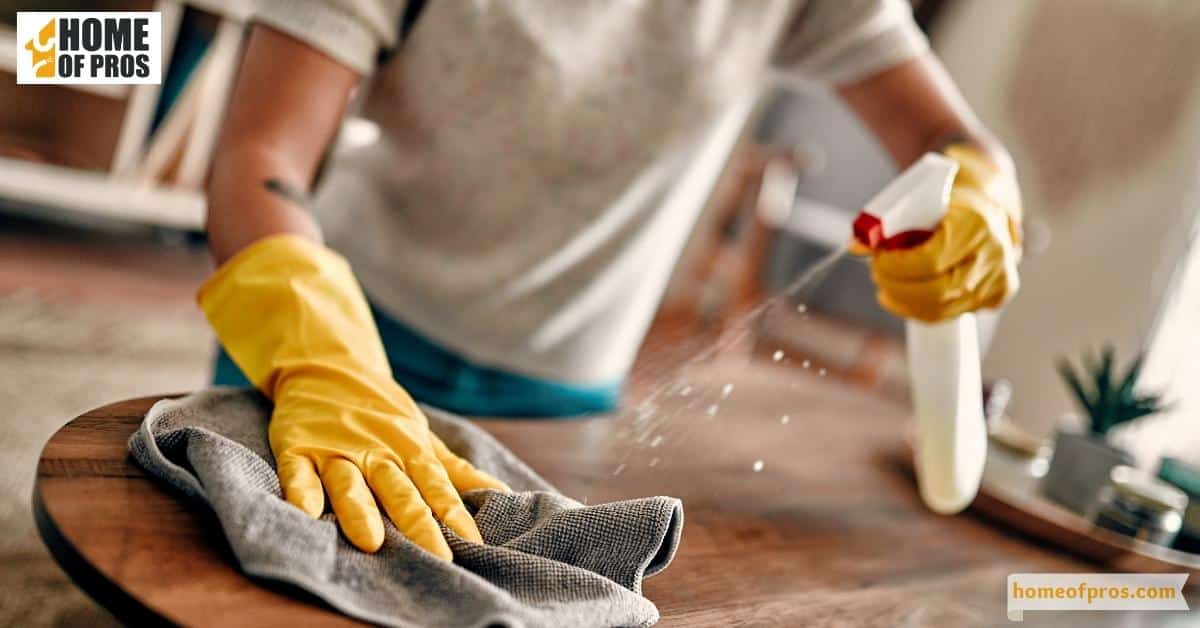
Install Window Screens
Window screens can prevent flies from entering your home. Make sure all your windows and doors have tight-fitting screens without any holes.

Use Fly Traps
Fly traps can be an effective way to control a house fly population. There are many types available, including sticky flypaper and electric fly zappers.
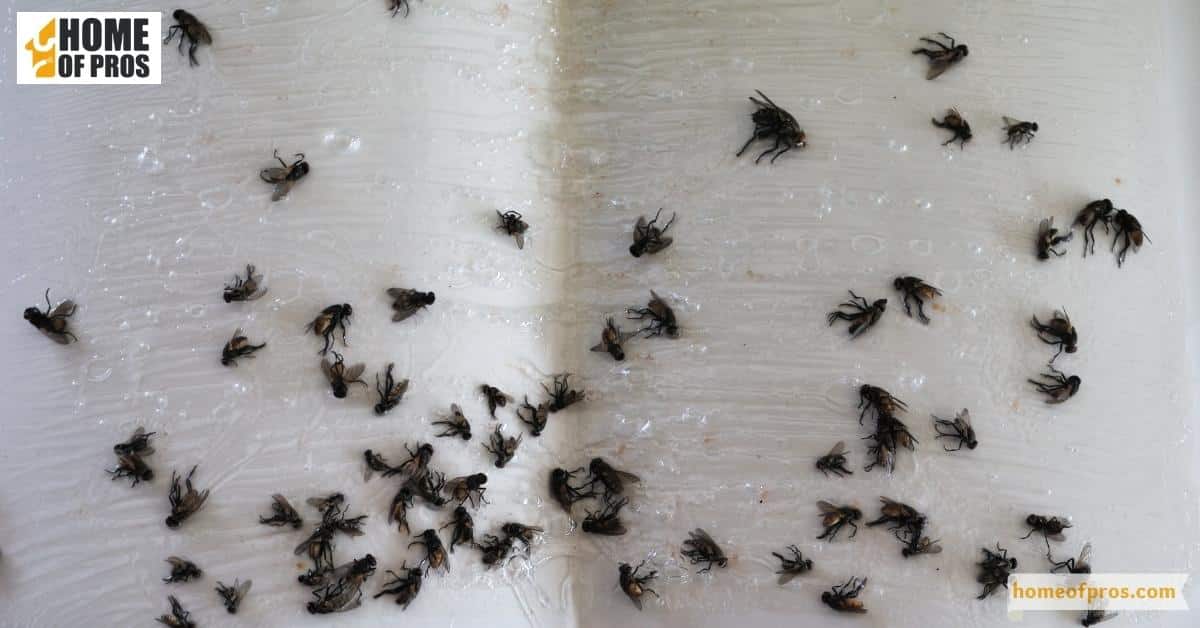
Natural Ways to Repel and Remove House Flies
Those pesky house flies can be quite a nuisance, not to mention potential carriers of harmful diseases. But worry not, there are plenty of natural ways to repel and remove these unwelcome guests from your home.
Let’s explore some of these eco-friendly methods.
Create a Homemade Fly Trap
One of the most effective natural methods involves creating a homemade trap using apple cider vinegar and dish soap.
The vinegar attracts the flies, while the soap makes them unable to fly away. Simply mix equal parts of both in a small bowl, add a pinch of sugar, and watch as the flies get drawn in.

Make Use of Essential Oils
Certain essential oils like lavender, eucalyptus, peppermint, and lemongrass not only fill your house with a delightful aroma but also deter flies.
You can create a spray by adding a few drops of these oils to water and spritz it around the house.

Grow House Fly Repellent Plants
Nature provides its own solutions to keep flies at bay. Plants such as basil, mint, and marigold are known for their fly-repelling properties.
Having these plants around your home can help deter flies naturally.
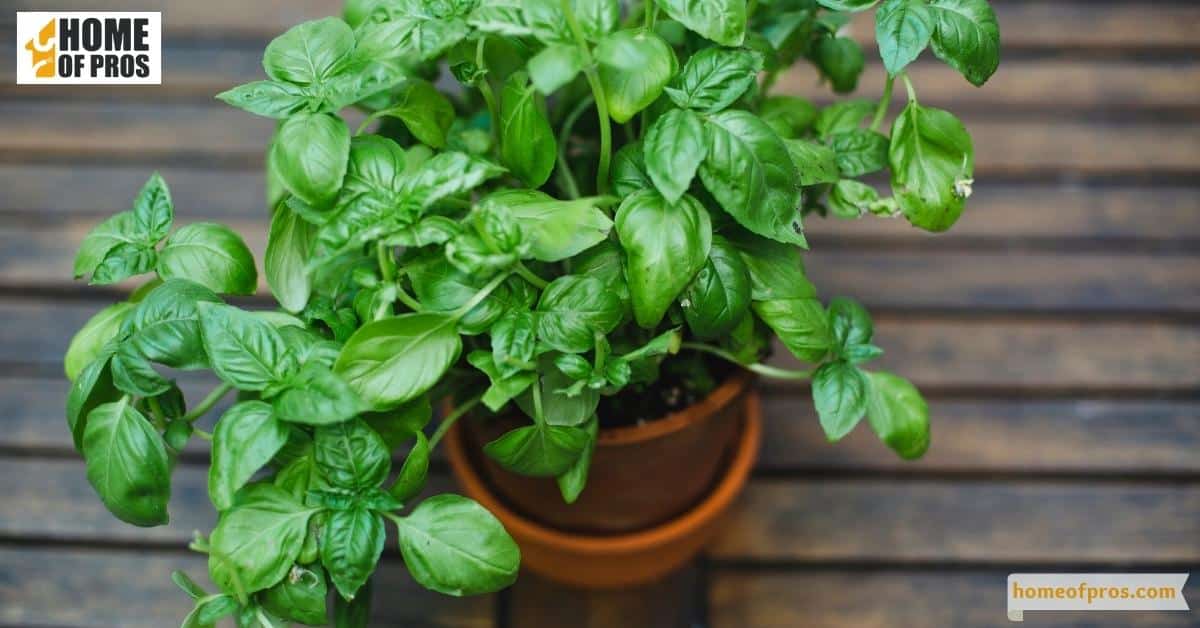
Cayenne Pepper Spray
Cayenne pepper is a fantastic natural fly repellent. Mix one cup of water and one teaspoon of cayenne pepper in a misting bottle and spray it near entryways and wherever you see flies.

Carnivorous Plants
If you’re feeling adventurous, consider getting a carnivorous plant like a Venus flytrap. These plants attract, capture, and digest insects, providing a fascinating way to control your house fly problem.
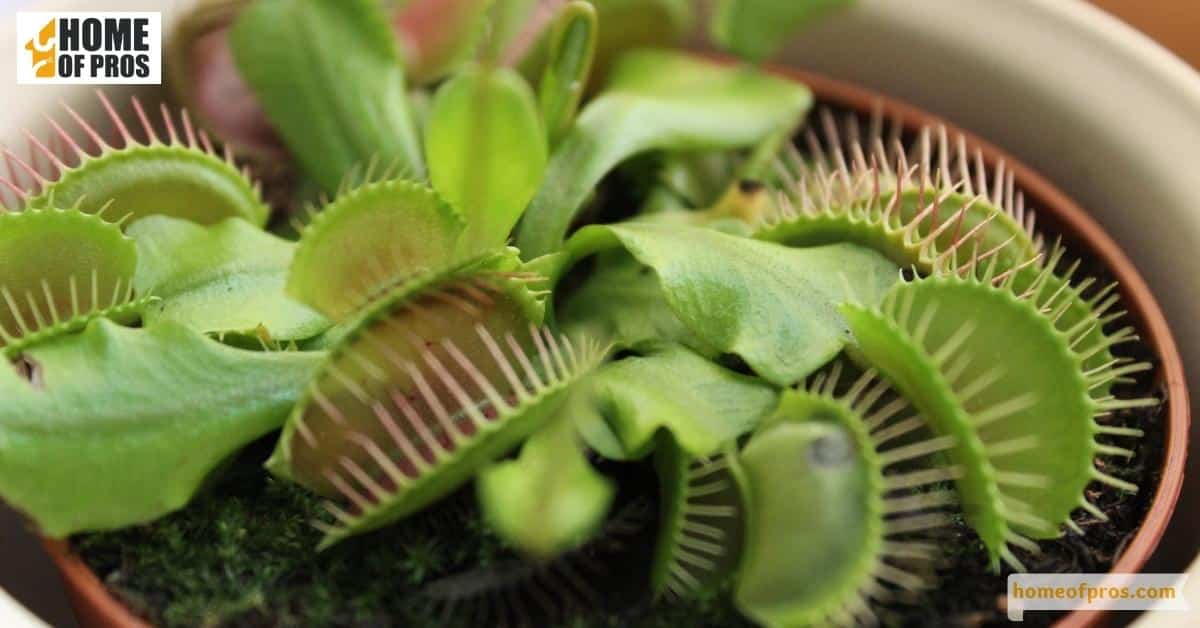
Insecticides and Repellents for Controlling Houseflies
Houseflies can be a pesky problem, but luckily there are several effective insecticides and repellents available to control them. Here’s a look at some of the most common ones.
Pyrethroid-Based Insecticides
Pyrethroids are synthetic versions of natural insecticides found in chrysanthemum flowers. They’re often used in sprays and aerosols to combat houseflies. Permethrin is a commonly used pyrethroid insecticide that’s proven quite effective against flies.
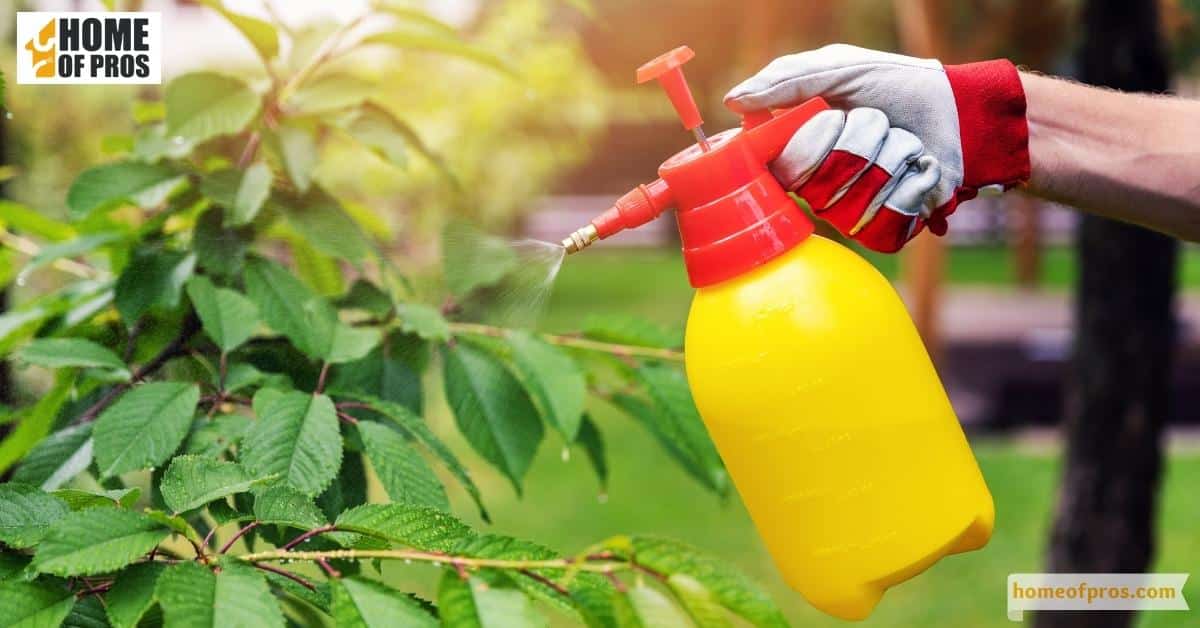
Fly Baits
Fly baits like QuickBayt® and Golden Malrin® are sugar-based compounds that attract adult flies.
When flies feed on these baits, they ingest the insecticide and are eliminated. These baits can be an effective solution for severe infestations.
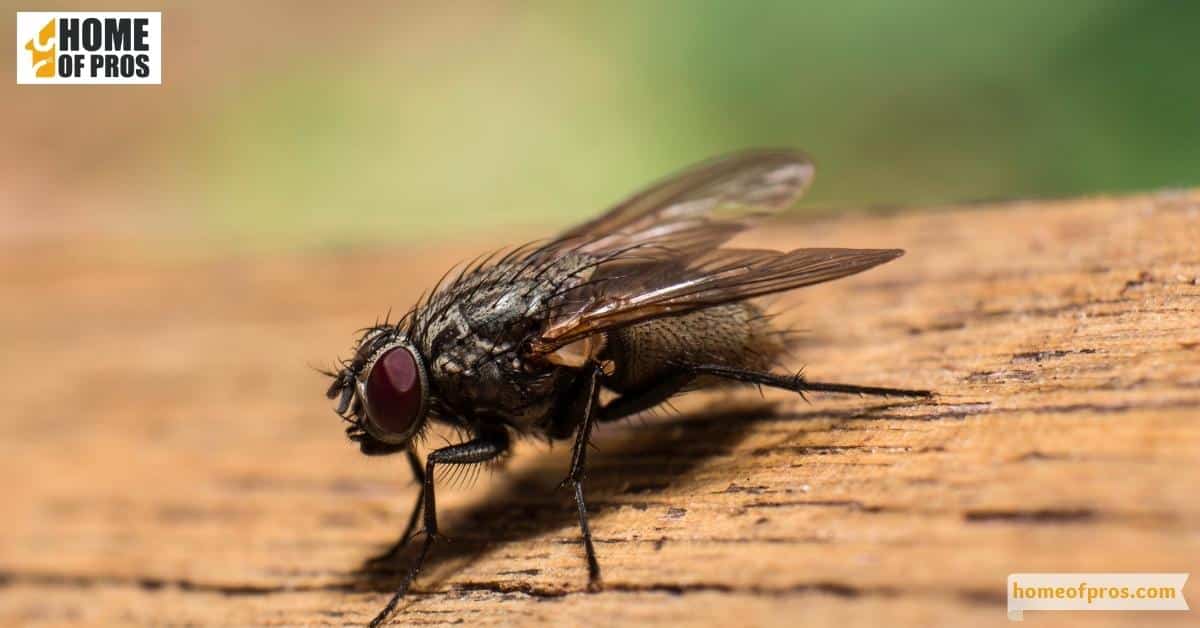
Pyrethrin Insecticide Aerosols
For immediate results, aerosols containing pyrethrins (natural insecticides found in certain types of chrysanthemum flowers) can be used.
They work quickly but don’t provide a lasting residual effect, so they’re best used for immediate relief rather than long-term control.
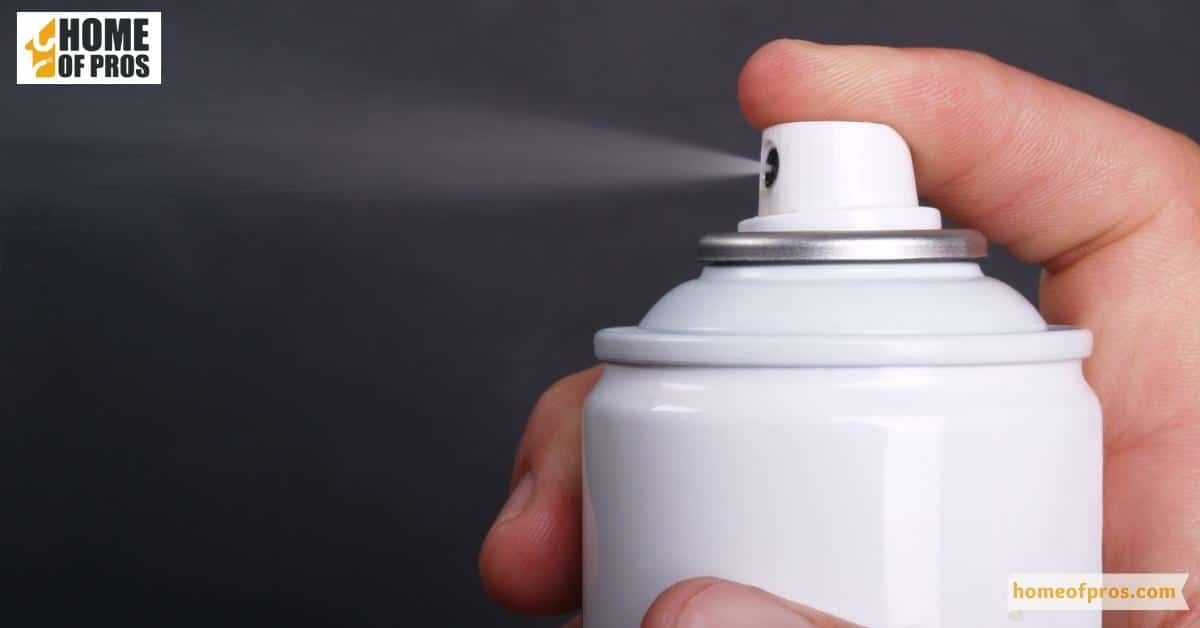
Diatomaceous Earth
Diatomaceous earth is a natural pesticide made from crushed fossilized algae. It’s non-toxic to humans and pets, making it a safer option for households. It can be sprinkled around areas where flies are a problem.
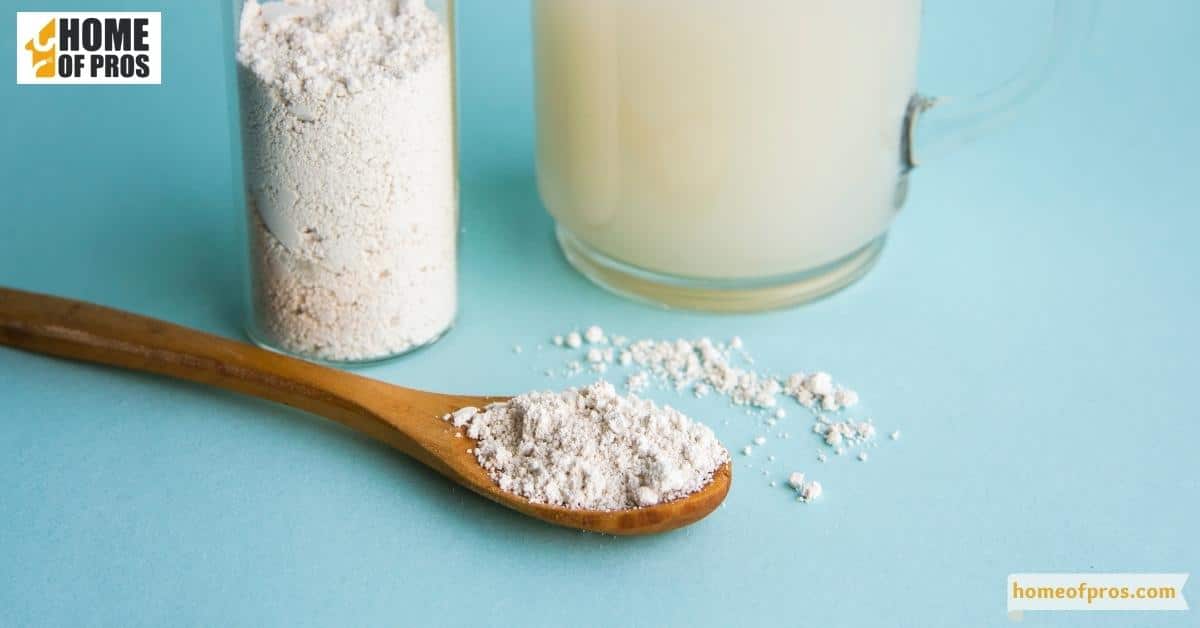
Natural Repellents
Natural repellents are a great option if you prefer to avoid chemicals. Essential oils like peppermint and lemongrass can deter flies, and plants like basil and marigold are known to repel them as well.

Attractive Materials that Draw in House Flies
House flies are attracted to a variety of materials and substances, particularly those that offer a source of food or a suitable breeding ground.
Here are some of the most attractive materials for house flies:
- Decaying Organic Material: House flies are primarily attracted to decaying organic matter such as rotting meat, fruits, and vegetables. This is where they feed and breed.
- Garbage: Household waste, especially when it involves food scraps, can be a major draw for house flies.
- Animal Waste: Manure and other types of animal waste are very appealing to house flies, serving as both a food source and a place to lay eggs.
- Sweet Substances: House flies are also drawn to sugary substances. Fruit flies in particular are known to seek out these kinds of materials.
- Sewage: Any form of sewage or stagnant water can attract house flies due to the organic material present.
- Fermented Substances: Leftover food, beer, and other fermented substances are enticing to house flies.
- Colored Materials: Some studies suggest that house flies can be attracted to certain colored materials, particularly those that mimic their natural environments.

Eliminating Breeding Grounds for Flies
Eliminating breeding grounds is a crucial step in controlling the house fly population in your home. Flies breed in decaying organic material, so it’s important to manage your waste effectively.
Regularly take out your trash and ensure your bins are sealed to prevent flies from accessing potential breeding sites.
Keep your kitchen clean, as food scraps and spills can attract flies and provide a place for them to lay eggs. Make sure to clean up immediately after meals, and don’t leave dirty dishes out overnight.
If you have pets, clean up after them promptly. Animal waste is a prime breeding ground for flies. Similarly, if you have a compost pile, make sure it’s properly maintained and covered to deter flies.
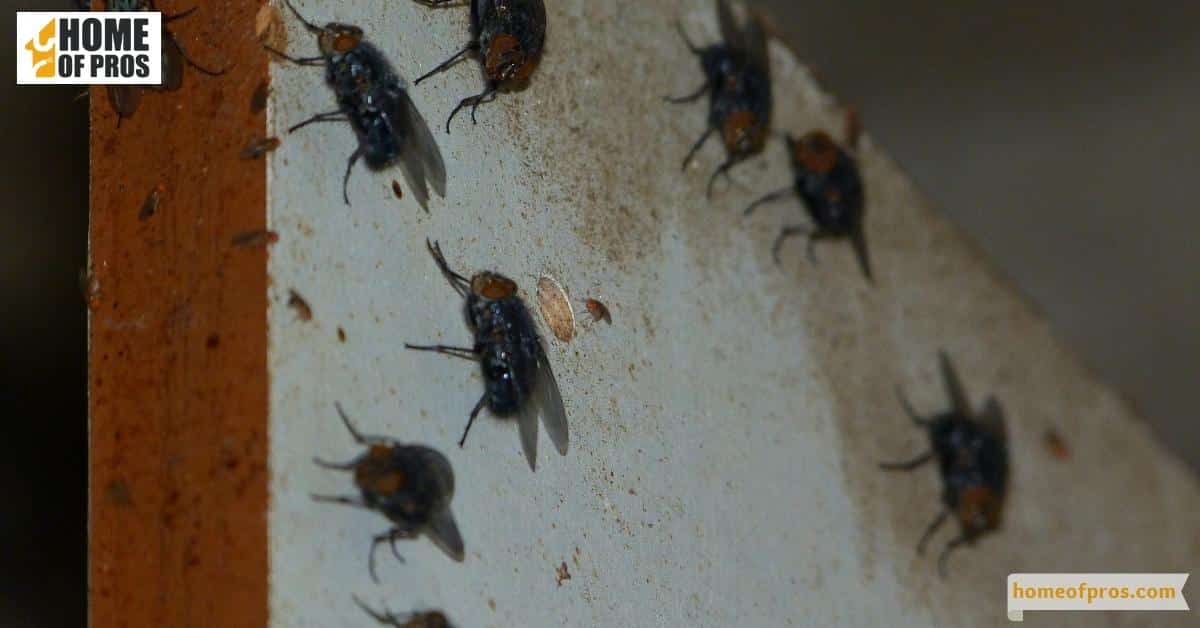
Professional Extermination of House Flies, When Necessary
Professional extermination of house flies is an effective approach when you’re dealing with a serious infestation.
Exterminators use a variety of methods to eliminate these pests. They often employ insecticides, which can kill an existing fly population.
These come in several forms such as residual sprays, aerosols, fogging materials, and baits. A combination of these treatments is typically used for best results.
Fly lights with distinctive UV spectrums are also a popular tool among professionals. These devices attract flies and trap them, proving especially useful in commercial establishments.
In addition to these measures, professionals can conduct a thorough inspection of your home, identifying key breeding spots and entry points for flies. This helps in devising a comprehensive pest control program that not only handles the existing problem but also prevents future infestations.
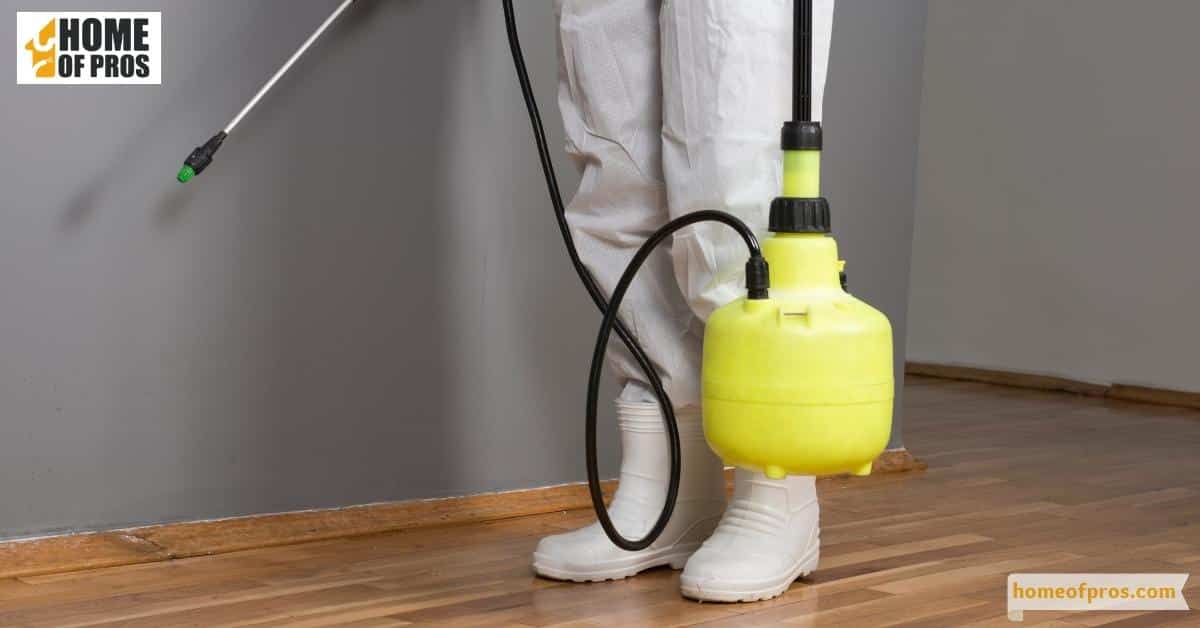
In conclusion
There are several effective strategies that can help control and remove flies from your home. Keeping your living spaces clean and free from food debris is one of the most important things you can do to prevent flies from infesting your home.
Additionally, investing in fly traps or fly paper can help capture any remaining flies. Another effective method is using essential oils, such as lavender or peppermint, to repel flies.




